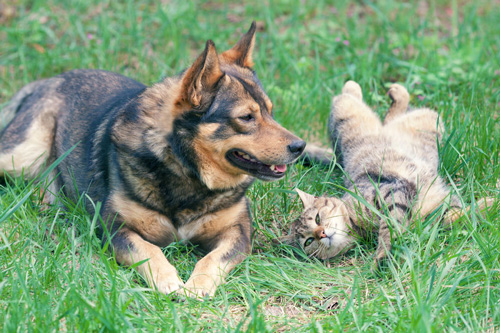Reading Comprehension Text and Exercises
Interesting Word Origins in the English Language
Part 2
See Interesting Word Origins in the English Language, Part 1
Learning the origin of every new word you acquire is the best way to really understand how the language works, and to ease the future process of learning.
More precisely, multiple words in English often take the same Latin or Greek prefix (letters at the beginning of a word, like pre-, meaning "before") or the same suffix (what comes at the end of a word, like –less, meaning "without"), so by knowing what they are and where they come from, you can better understand many new words at once.
Click Here for Step-by-Step Rules, Stories and Exercises to Practice All English Tenses
New Words in English
- English is not only constantly changing, but is also always growing. In only one year, the Oxford English Dictionary adds around 500 new words and phrases. That means hundreds of new words that even native speakers have to learn!
- One such word added in 2016 is levain, a noun which means "a substance used to produce fermentation in dough". This word is borrowed from French in its original form, but it derives from Latin levo, a verb meaning "soften or mitigate" (to mitigate means to make something less harmful).
- Yet, some words added to the dictionary are completely new, usually invented by young people and used in the urban spoken language. The word vom, which is short for "vomit" has become a slang commonly used not just when a person is vomiting, but also when somebody is sick. The Oxford English Dictionary recognized it both as a verb and a noun in 2016.
- Another example: chillax means "to calm down and relax" (a combination of chill and relax). This is an example of how a lot of people talk these days. But although it now appears in dictionaries, this new word is not always appropriate. In academic, business or scientific writing, it's best to avoid using it.

Check
As a verb, "check" means to take a close look at something, or verify it. The word appeared in the 1300s and was used to describe a call which notes that a move placed the opponent's king in danger in the popular game of chess.
As such, it came from Old French eschequier, meaning "a check at chess", and eschec which is how the French call chess.
However, few people know this French word, too, was borrowed, and that it was inspired by the Persian word shah meaning "king".
Initially, the English word "check" was used only to describe a harmful incident or some danger, but it later came to mean "examining something to see if it is good enough, safe or correct", slowly becoming one of the most commonly used verbs in English.

Tattoo
Tattoos are drawings on a person's body made by inserting ink or dyes, and can be either temporary or indelible (permanent).
Tattoo is also one of the few words which the English language borrowed from Polynesian. Polynesian is the language of the people of Polynesia. Polynesia is a group of over one thousand islands in the central and southern Pacific Ocean. The name comes from Greek poly (many) + nesos (island).
The word tatau in Polynesian means "to write". The first reference to the word "tattoo" was found in the journal of Joseph Banks, a British explorer working on Captain Cook's ship (Captain Cook was a British explorer who sailed and mapped much of the South Pacific).
When Cook came back to England from Tahiti (an island in Polynesia) in 1769, he spoke about tattaw native people had on their bodies. (Nearly everyone in ancient Polynesian society was tattooed.)
Before this word entered the dictionary, English-speaking people described this concept as painting or staining.

Disaster
The word "disaster", used to describe a serious disruption or an event with grave consequences, traveled a long way to the English language.
The word "disaster", used to describe a serious disruption or an event with grave consequences, traveled a long way to the English language. It is closely tied to the French désastre, which itself has roots in Old Italian disastro, but the Italians adopted this word from Greek.
The prefix dis- together with aster, meaning "star" in Greek, can be interpreted as "a bad star". The explanation for why a bad star equals disaster is found in the ancient Greek's fascination with astronomy and the universe. Therefore, for them, an unfavorable alignment of planets and stars in the sky was seen as particularly dangerous.

Penguin
The way these unique black and white birds got their name is still contested. It is possible that the word "penguin" originates from the Welsh language, in which pen means "head" and gwyn means "white".
There are written records which show that an expedition, which sailed around the world from 1577 to 1580, found these birds at the tip of South America. The Welsh men on the ship called them "pengwins".
Some people also suggest that it might have come from Latin pinguis, which means "fat". Considering the cold climate penguins live in, being fat sure serves them well, as the layers of fat protect them from the cold and also serve as a valuable energy store.

Salary
Nowadays, salary is money received for work, usually weekly or monthly. The word itself comes from the Latin word salarium, which actually means "payment for salt".
In ancient times, salt was so valuable, it was referred to as "white gold". Salt was not only used for food, but also to treat wounds, which is why sal, meaning "salt", and salud/salute, meaning "health" (in Spanish/Italian), are so similar.
In the ancient Egyptian kingdom, workers were often paid with salt, which they used to preserve their food.

See Interesting Word Origins in the English Language, Part 1
Comprehension Exercises
Vocabulary Questions
- What does "indelible" mean?
- not readable
- cannot be removed
- historically incorrect
- What does "slang" mean?
- informal language
- youth association
- type of poetry
- What does "disrupt" mean?
- send signs of danger
- cause an earthquake
- prevent or interrupt something
- What does "alignment" mean?
- arranged in a straight line
- making friends online
- being scattered
- What does "mitigate" mean?
- make something worse
- make something less severe or bad
- make something publicly known
Collocation Questions
- The word "check" was used to describe __________ incident.
- a wounding
- an injurious
- a harmful
- It is wise to look into etymology as you __________ new words.
- acquire
- obtain
- possess
- Tattoos are made by __________ ink into the skin.
- installing
- placing
- inserting
- The word "tattoo" __________ the dictionary after Cook's expedition.
- infiltrated
- entered
- joined
- Initially, "check" described a chess move which puts the __________ king in danger.
- opponent's
- enemy's
- challenger's
- Welsh men saw penguins for the first time at the __________ of South America.
- cap
- tip
- head
- "Disaster" has __________ in the Old Italian word "disastro".
- sources
- roots
- seeds
- Normally, salary is a __________ compensation for work.
- monetary
- capital
- financial
- The ancient Greeks were fascinated __________ astronomy.
- about
- of
- with
- In ancient times, salt was also used to __________ wounds.
- treat
- attend to
- nurse
Wh Questions
- How did "vom" come about as a word?
- It was introduced by philologists.
- It was borrowed from Norwegian.
- It was invented by younger generations.
- What did Egyptian workers do with their salt salaries?
- They used it to train doctors.
- They preserved food with it.
- They bathed in salt.
- Who was the first to use the word "disaster"?
- the Greeks
- the French
- the ancient Romans
- Where were penguins seen for the first time by the Welsh?
- in Wales
- in Northern Europe
- in South America
- Why was the word "check" tied to the French word "eschec"?
- because it described a chess move
- because it meant "chess" C. because it described a chess player
Evaluating Statements
- Based on the information in this lesson, which statement is true?
- Based on the oldest root of the word, "check" comes from French.
- Based on the oldest root of the word, "check" comes from Persian.
- Based on the information in this lesson, which statement is false?
- In Welsh, "penguin" means "white head".
- In Welsh, "penguin means "fat white".
True or False?
- Based on the information in this lesson, is the following statement true or false?
"Before Cook came back from Tahiti, the Brits did not know about the notion of tattooing." - True
- False
- Based on the information in this lesson, is the following statement true or false?
"When ancient Greeks saw a bad alignment of stars in the sky, they thought something disastrous was going to happen." - True
- False
Answer Key
1. B | 2. A | 3. C | 4. A | 5. B | 6. C | 7. A | 8. C | 9. B | 10. A | 11. B | 12. B | 13. A | 14. C| 15. A | 16. C | 17. B | 18. A | 19. C | 20. A |21. B | 22. B | 23. B | 24. A
Get Updates, Special Offers, and English Resources
Download your FREE GIFT (the first two chapters of
English Short Stories Book and Workbook)
as soon as you join!

By submitting your email, you consent to receiving updates and newsletters from us and to the sharing of your personal data with third parties for the purposes of sending you communications. We will not spam you. You can unsubscribe at any time. For more information, please see our privacy policy.





